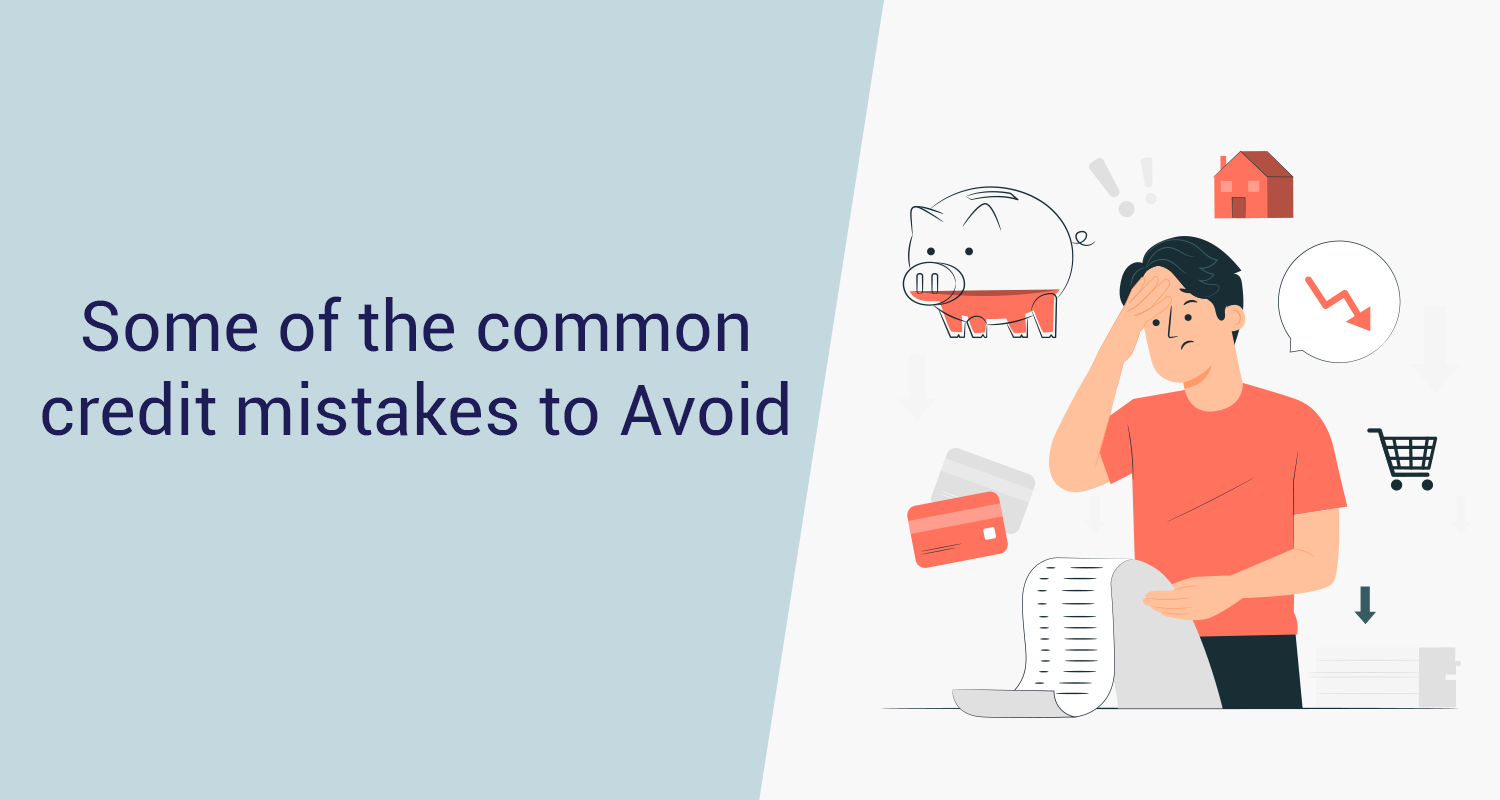What’s The Impact Of Minimum Payments On Credit Score?

Credit score has a big role in determining your creditworthiness. Therefore, maintaining a healthy credit score is crucial for financial well-being, whether seeking a loan, applying for a credit card, or even renting an apartment. How you utilize your credit card can considerably impact your credit score. Paying utility bills on time and keeping the credit card balance low compared to the credit limit can directly influence the score. However, there’s a common misconception that making minimum payments on your credit cards is enough to preserve a good credit score. It’s worth exploring whether making minimum payments truly affects your credit score. You must also know the best practices to maintain a favorable credit rating.
Understanding Credit Scores
India has four credit bureaus, CIBIL (Credit Information Bureau India Limited), Equifax, CRIF High Mark, and Experian, that generate credit scores. These bodies gather data from various lenders and financial institutions to calculate an individual’s credit score, which ranges from 300 to 900. A higher credit score signifies a lower credit risk, making it easier for you to access credit at favorable terms.Factors That Affect Your Credit Score
Several factors influence your credit score, and payment history is one of the most critical aspects. Lenders closely examine how promptly you pay your credit card bills, loans, and other debts. Credit utilization, the amount you owe, length of credit history, and new credit inquiries are also considered when determining your credit score.Minimum Payments And Their Impact
Credit card companies keep sending reports to credit bureaus about your monthly payment amounts. This data will be reflected in your credit report regardless of the payment size. If customers consistently pay their bills, even if it’s just a small portion, their credit score may remain unchanged. However, the data will indicate a change in financial behavior that increases the customer’s liability to the lender. Only when a customer misses a payment or experiences a rise in their credit utilization rate will their credit score be negatively affected.
You must note that making minimum payments on your credit card bills can be tempting, especially when facing financial constraints. While doing so may prevent immediate default, it can significantly affect your credit score. The changing behavioral pattern among credit card users is evident due to a growing trend of making minimum payments. A survey states that customers who consistently make full payments had a 63% lower likelihood of defaulting in a six-month period. On the other hand, customers who opt for minimum payments or slightly above the minimum amount are 86% more likely to default in the subsequent six months.
Here’s how minimum payments affect your creditworthiness in India:
Negative Impact on Credit Utilization:
Credit utilization is your credit card balance ratio in relation to your credit limit. By making only minimum payments, you continue to carry a high outstanding balance, which increases your credit utilization ratio. High credit utilization suggests that you heavily rely on credit, which can lower your credit score.Late Payment Impact:
If you make minimum payments but fail to do so on time, your credit card company will report it as a late payment to the credit bureaus. Late payments have an immense bearing on your credit score. they remain on your credit report for many years.Accumulation Of Interest:
You’ll accrue substantial interest on the remaining balance by paying only the minimum amount due. This could lead to a debt trap, making clearing the dues and improving your credit score even harder.Creditworthiness Perception:
Lenders may view individuals who consistently make minimum payments as having higher credit risks. As a result, they may be reluctant to offer you favorable credit terms or even approve your loan applications.How To Maintain A Healthy Credit Score
If you are careful about a few factors, you can improve and consistently maintain your credit score. For this, you must:Pay By Due Date:
Whether credit card bills or loan EMIs, pay up on time, in full, or at least more than the minimum amount due. Setting up reminders or automatic payments can ensure you don’t miss any due dates.DecreaseCredit Utilization:
Aim to keep your credit card balances well below the credit limit. A general rule of thumb is maintaining credit utilization below 30% to impact your credit score positively.Check Your Credit Report Regularly:
Doing so from different bureaus to spot inaccuracies or discrepancies. If you find any errors, report them to the respective credit bureau for rectification. Checking free CIBIL scores online is a good practice for monitoring your credit behavior.Diversify Credit Mix:
A mix of credit types, such as credit cards, personal loans, or a mortgage, can positively impact your credit score. However, apply for new credit responsibly and only when necessary.If you make minimum payments on your credit card, it can adversely affect your credit score. High credit utilization, late payments, and perceived creditworthiness are just a few of the negative consequences. To maintain a healthy credit score, paying your bills on time and in full whenever possible is crucial. A strong credit score ensures a smoother borrowing experience when needed. So, make wise financial decisions and nurture your credit score for a secure and stable financial future.
If you wonder how to know CIBIL score, you can log on to the bureau’s official website, enter your details and follow all the required steps. IIFL is an excellent resource for knowing your credit history and getting experts’ advice on improving your credit score. Based on your credit behavior, you can also avail yourself of many financial products that will open doors to better financial opportunities.
Disclaimer: The information contained in this post is for general information purposes only. IIFL Finance Limited (including its associates and affiliates) ("the Company") assumes no liability or responsibility for any errors or omissions in the contents of this post and under no circumstances shall the Company be liable for any damage, loss, injury or disappointment etc. suffered by any reader. All information in this post is provided "as is", with no guarantee of completeness, accuracy, timeliness or of the results etc. obtained from the use of this information, and without warranty of any kind, express or implied, including, but not limited to warranties of performance, merchantability and fitness for a particular purpose. Given the changing nature of laws, rules and regulations, there may be delays, omissions or inaccuracies in the information contained in this post. The information on this post is provided with the understanding that the Company is not herein engaged in rendering legal, accounting, tax, or other professional advice and services. As such, it should not be used as a substitute for consultation with professional accounting, tax, legal or other competent advisers. This post may contain views and opinions which are those of the authors and do not necessarily reflect the official policy or position of any other agency or organization. This post may also contain links to external websites that are not provided or maintained by or in any way affiliated with the Company and the Company does not guarantee the accuracy, relevance, timeliness, or completeness of any information on these external websites. Any/ all (Gold/ Personal/ Business) loan product specifications and information that maybe stated in this post are subject to change from time to time, readers are advised to reach out to the Company for current specifications of the said (Gold/ Personal/ Business) loan.



